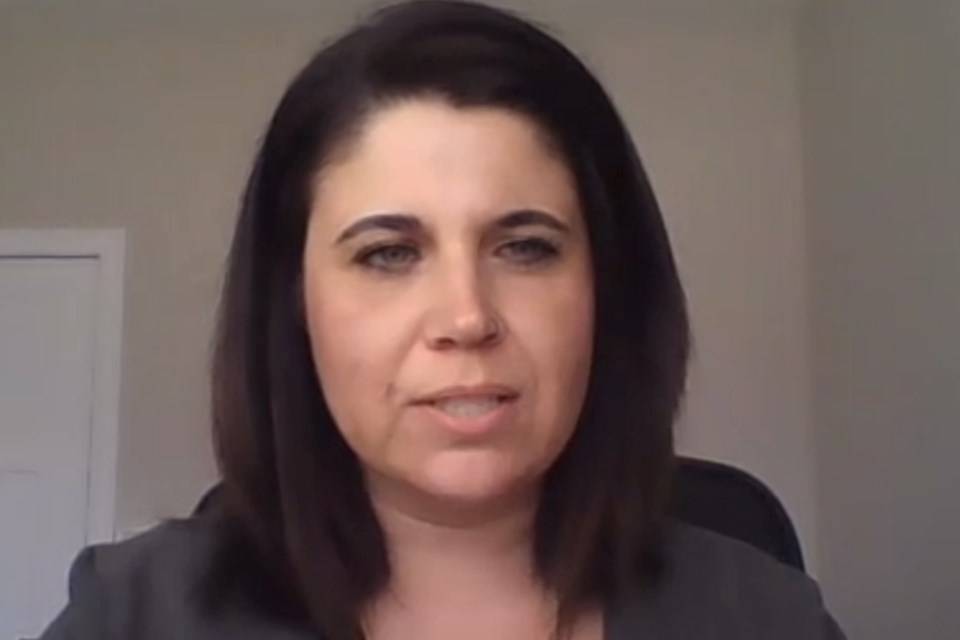OLDS — There were no surprises for the town in last week’s provincial budget, but it does mean there will be less money for capital projects going forward, town council has been told.
Interim chief administrative officer and finance director Sheena Linderman gave that assessment during town council’s Feb. 28 meeting. The provincial budget was unveiled Feb. 24 at the legislature in Edmonton.
The provincial government warned earlier that Municipal Sustainability Initiative (MSI) funding to municipalities would be eliminated by 2024, replaced by the Local Government Fiscal Framework.
The Town of Olds has used money received from the province via that fund to help pay for various construction projects and improvements in the community.
Linderman said the province also indicated that when the Local Government Fiscal Framework kicks in, it will provide about 37 per cent less funding per year compared to the annual average municipalities have received over the last 10 years.
“I have brought to council’s attention previously the decreases we would be seeing in MSI capital for the years 2022 and 2023 and the province did not disappoint. They brought that,” she said.
She said the government softened the blow by providing a bit more MSI money in 2021.
“With that knowledge, at the Town of Olds, we set it up so we would not spend our entire 2021 allocation and in fact carry forward amounts to 2022 and 2023 in order to even out that spending,” Linderman said.
“It’s still not at the level that we are used to receiving. It’s about a 25 per cent decrease in the end. But we’re able to level it out a bit.”
Linderman said at the moment, how the Local Government Fiscal Framework will be allocated to municipalities remains a mystery.
Meanwhile, she said, all other operating sources of funding such as the police operating grant, Family and Community Support Services (FCSS) money and grants in lieu of taxes have all remained the same for 2022.
The education property tax, which municipalities are required to collect on behalf of the provincial government will rise by 1.5 per cent, Linderman said.
However, she noted that “the total impact to our residents and businesses will not be determined until we have received our official assessment values for 2022.”
That’s because the province calculates the total requisition per municipality based on equalized assessment values that are two years behind, yet municipalities must levy the tax based on assessment values that are only one year behind.
“So this often leaves a disparity between the increase announced by the province and the actual tax that we need to levy to cover this requisition,” Linderman said, adding she’ll bring more information on that to council “in the coming months.”
Capital investment and affordable and seniors housing programs are set to decrease from $112 million to $87 million this year, with a further decrease to $81 million in 2023, she said.
Money for mental health and addiction will rise by $20 million a year on top of the $140 million over four years that was previously announced in 2019.
Emergency Medical Services (EMS) funding will increase by $64 million.
A local committee was formed last fall, similar to others created elsewhere in Alberta to pressure the province for better ambulance service in the community.
In general, Linderman said, provincial money for health-care practitioner attraction and retention will remain on par with previous spending on physicians ($5.4 billion a year).
The province did announce the Rural Education Supplement and Integrated Doctor Experience (RESIDE) program, which will provide $6 million to 60 new family physicians over three years.
However, Linderman said that program is specifically for 15 rural or remote communities and Olds is not on that list.
Given all that, especially the fact that the amount of MSI funding has been slashed, Coun. Darren Wilson said the Town of Olds should create a publicity campaign to warn residents of that fact and not to expect big expenditures on capital projects.
Coun. Heather Ryan noted that earlier there was a suggestion that as the provincial economy grows, the provincial government might loosen the purse strings for Local Government Fiscal Framework money.
Linderman agreed there was some talk of that.
“That’s good,” Ryan said. “If Alberta does well then all the municipalities will do well as well. “There’s always hope.”
Coun. Dan Daley said he was encouraged by the extra money for EMS.



